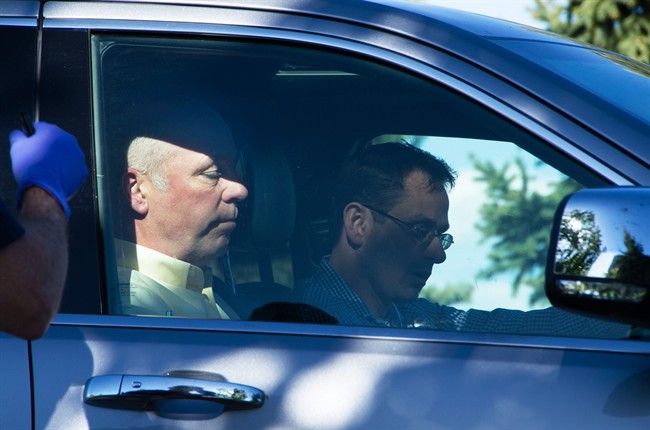In their recent report on the state of press freedom worldwide, the human rights group Freedom House lamented that the situation had deteriorated to “its lowest point in 13 years in 2016 amid unprecedented threats to journalists and media outlets in major democracies.”

Furthermore, they cite the “far-reaching attacks on the news media and their place in a democratic society” — led by President Donald Trump — as cause for concern about “further setbacks in the years to come.”
The media is not above criticism, and citizens are certainly free to hold the fourth estate in contempt. Unfortunately, though, that growing cynicism is eroding our appreciation for this fundamental freedom. If journalists are impeded from doing their jobs, be through state interference or threats of violence, then democracy itself suffers.
READ MORE: Texas governor: I’ll carry this shooting target around ‘in case I see any reporters’
Does anyone — conservative, liberal or otherwise — want to live in a society where journalists are afraid to publish stories or where governments get only favourable coverage? Unfortunately, there’s a long list of countries where we can see what that looks like in practice. There’s a reason why the Charter of Rights and Freedoms, as well as the U.S. Constitution, guarantees press freedom.
This past week brought us a rather bizarre and disturbing incident in Montana where, on the eve of an election to fill that state’s congressional seat, Republican candidate Greg Gianforte reportedly attacked Guardian reporter Ben Jacobs.

Get daily National news
In the audio recording of the incident, we hear Jacobs ask a question about the Republican health-care bill, and Gianforte reacting angrily, demanding the reporter “get the hell out” before allegedly grabbing Jacobs and body-slamming him to the floor.
- Calgary family living in a car calls for more resources for unhoused families
- Two men charged after violent attempted kidnapping in downtown Calgary
- ‘I’ve never seen this much misery,’ says Calgary man on the front lines in Ukraine
- Immigration, medical assistance in dying on agenda as Alberta legislature resumes
Gianforte later apologized, but not before a charge of misdemeanour assault was laid.
If you are so delicate as to fly into a violent rage when faced with a question that offends your delicate sensibilities, then perhaps politics is not for you. Gianforte could have simply replied, “No comment,” if he didn’t feel like answering the question. Freedom of the press doesn’t obligate you to answer a journalist’s question, but it precludes you from actively preventing them from doing their job. Like by body-slamming them, for example.
Just as disturbing as the incident itself, however, was the fact some on the right were willing to justify, or even celebrate, what Gianforte did. That somehow, this uppity leftist reporter got what was coming to them. However, that certainly was not their reaction in January when a correspondent from a Canadian alt-right website was assaulted at the Women’s March in Edmonton.
So, no, it doesn’t matter if the journalist is “biased,” or has an “agenda” (neither would appear to be true of Ben Jacobs, in any case) — the assault of any journalist is an affront to freedom of the press. That’s doubly so if it’s a representative of the state applying the violence and intimidation.
A situation in Hamilton earlier this month also raises concern about the extent to which the state is prepared to interfere in the work of journalists. A videographer for Global News and a freelance journalist were both arrested by Hamilton police while trying to cover the aftermath of a fatal collision. Both were well back of the scene and behind the perimeter established by police.
We still don’t know why police acted as they did. The group Canadian Journalists for Free Expression has called for an inquiry, noting that at least six similar incidents have occurred recently.
There’s a popular saying on the Internet, sometimes attributed to George Orwell, other times to William Randolph Hearst: “News is something somebody doesn’t want printed; all else is advertising.”
It’s a rather glib and simplistic way to look at the question, but it highlights an important truth: journalism will ruffle feathers. Indeed, at times, it must. If we allow those whose feathers might be ruffled to determine whether a story is told in the first place, or to tell it only the way they want it told, then what do we have then? Surely not a free press.
Rob Breakenridge is the host of “Afternoons with Rob Breakenridge” on Calgary’s NewsTalk 770 and a commentator for Global News.












Comments
Want to discuss? Please read our Commenting Policy first.